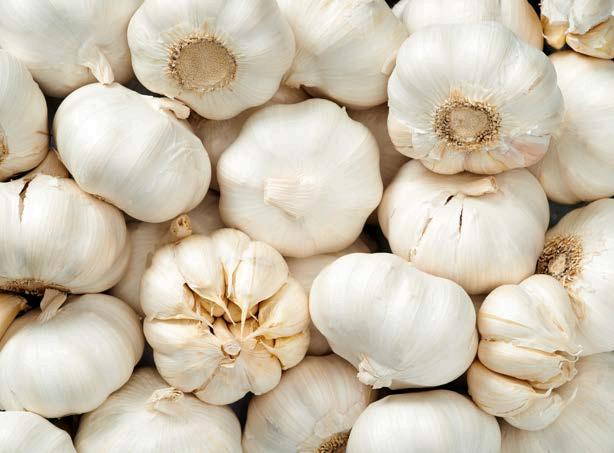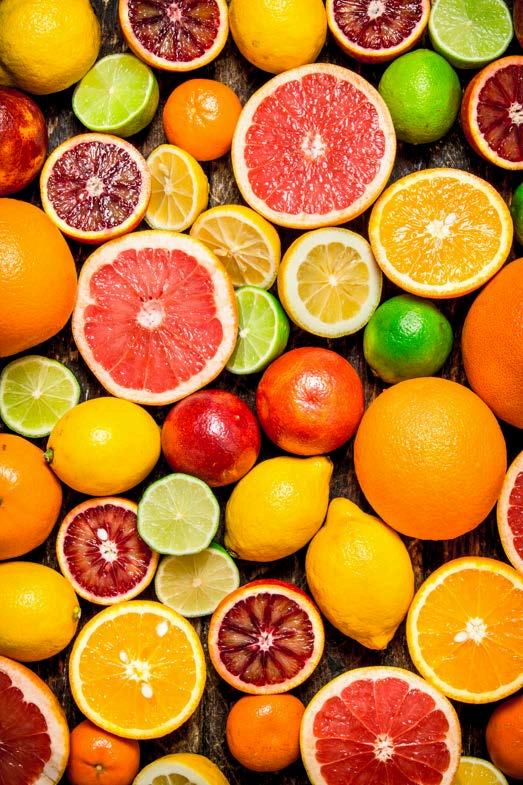

BoostYour ProstateHealth
TheUltimateGuideto NaturalSolutions


Ask anyone and they’ll probably tell you that someone they know — a spouse, father, brother, friend — has experienced prostate problems. That’s how widespread and increasingly common this health issue has become.
Estimates show that half of all men over 60 will have benign prostatic hyperplasia (BPH), aka an enlarged prostate. That number skyrockets to 90% by age 85. In the case of prostate cancer, statistics show that 1 in 8 men will be diagnosed with it during their lifetime.
These odds may seem grim, but researchers continue to make strides against BPH, prostatitis (prostate inflammation), and prostate cancer. New findings are expanding our understanding of the many risk factors, and importantly, solutions that can help support long-term prostate health.
The most important thing for men is to prioritize prostate care
The sooner you address any minor prostate problems or symptoms — even seemingly unrelated issues— the better your chances of staying healthy.
Fortunately, there’s a lot you can do, including learning about the pros and cons of PSA testing, the best diet for men, according to research, and a doctorformulated supplement shown to support prostate health.


Fuel Your Body with the Right Nutrition



Multiple studies have shown that following a whole-food diet, particularly a Mediterraneanstyle diet, helps reduce a man’s odds of developing prostate cancer or other prostate issues. Not surprisingly, antioxidant-rich vegetables are strongly associated with a reduced risk of BPH. Dietary intake of lycopene (found in tomatoes and watermelon) and zinc (oysters, crab lobsters, seeds) have both been shown to cut a man’s risk of prostate cancer.
3
Top inflammatory foods to avoid or severely limit:
Foods high in polyphenols — including berries, cocoa powder, olives, flaxseeds, nuts, coffee, and tea — appear to offer extra protection against prostate cancer according to research.2
Foods that contain the plant compound beta-sitosterol are particularly healing to the prostate. These include avocado, peanuts, wheat germ, rice, bran, and soybeans.
Other great foods to emphasize include omega-3-rich fish like salmon (anti-inflammatory), pumpkin seeds, medicinal mushrooms, green tea, and tempeh, high in prostate-protective
According to research, conventional red meat, processed meat, smoked or cured meat, and dairy are foods to limit for prostate health. If you occasionally have meat, make it organic, grass-fed beef, high in prostate-supportive nutrients, including selenium, zinc, and the beneficial fat, conjugated linoleic acid.
Unlock the Power of Exercise
Exercise is key to keeping your prostate healthy and lowering your risk of prostate cancer. In one study from the International Journal of Epidemiology, men who had a variation in their genetic code that corresponded with greater physical activity, had up to 50% reduced risk of prostate cancer. This study echoes previous research showing that regular exercise helps cut the risk of prostate cancer and other prostate issues.
Yoga may be a particularly good option — strengthening your pelvic floor muscles with yoga helps promote better bladder control and can decrease BPH symptoms, say yoga instructors.



StartTakingDailyProstate Supplements
There are several standout nutrients for prostate health — and research backs up their efficacy. These natural and researched ingredients can give you the protection boost you need.
ProstaCaid is a science-backed blend of 33 prostate-specific botanicals and nutrients. This physician-formulated supplement actively supports prostate and urinary function and defends prostate cellular health — even against aggressive prostate cells. Superstar ingredients include turmeric, quercetin, pomegranate, pygeum, saw palmetto, and pumpkin seed oil. Other additions, such as vitamin D, DIM, nettle leaf, and alpha lipoic acid, provide much-needed immune and hormonal support.*
One of the most powerful supplements for prostate health is PectaSol, an extensively researched form of modified citrus pectin (MCP). A new study published in Nutrients revealed that a whopping 90% of participants experienced prostate health benefits after taking PectaSol for 18 months. Sixty-two percent of subjects experienced decreased or stable PSA levels and 85% showed no signs of progression in biochemical and scan assessments. Notably, no adverse effects or toxicity were seen throughout the study.*
This multi-center, peer-reviewed clinical study is the largest published clinical trial demonstrating that PectaSol is safe and effective as a non-hormonal, oncological nutritional solution to actively support and defend long-term prostate health.*
Modified citrus pectin is derived from the pith of citrus fruit peels, including lemons, limes, and oranges. (PectaSol does not contain grapefruit.) The pectin fiber is reduced to a tiny, absorbable size that gives it the ability to enter the circulation and bind to and block Galectin-3, a protein that, when overexpressed, can fuel inflammation, harden tissues and organs, and wreak havoc with serious health impacts throughout the body.*


Discover the Key to Getting Enough Vitamin D
Low levels of vitamin D are associated with an increased risk of BPH. Other research from the National Cancer Institute shows higher vitamin D is linked to lower PSA numbers.
It’s important to prioritize getting enough vitamin D. Here are some simple ways to boost your vitamin D levels naturally:
Spend15–20minutesoutsideinthesunonmostdays.Makesuresomepartofyourbodynotcoveredin sunscreenisexposedtosunlight.Sittingbyawindowwon’tcutit,unfortunately.MostglassblocksUVB rays,whichareresponsibleforvitaminDproduction.
TakeavitaminDsupplementandacombinationformulathatcontainsamplevitaminD.Getyourvitamin Dlevelcheckedwithabloodtesttogaugeyourneeds.AlwayscombineyourvitaminDsupplementwith alittlefat(e.g.,aspoonfuloffull-fatyogurtoroliveoil).Storeawayfromlight,heat,andhumidity.
Because vitamin D is both ingested and manufactured by the body, getting enough through diet can be challenging. There simply aren’t that many D-rich foods — and it’s worth noting several of them (e.g., milk) are actually fortified with the nutrient.
The best source of vitamin D is wild, cold-water fish, such as salmon and sardines. Cod liver oil is an exceptionally good source as well. Egg yolks are also rich in vitamins. Mushrooms also provide a boost of vitamin D, particularly shiitake. One study in the International Journal of Medicinal Mushrooms found that three specific medicinal mushrooms — reishi, shiitake, and maitake — are particularly packed with vitamin D when exposed to sunlight. “Sunexposed mushrooms may be an excellent dietary response for addressing the significant worldwide incidence of vitamin D deficiency,” say the researchers.


Master Stress Management
Stress can have a major toll on your health, so take time for yourself to breathe, meditate, or practice self-care. When you find calm and relax, you release stress and tension and can reduce the risk of burnout, not to mention serious health issues.

Manystudiesshowthatmeditationpracticecanbenefitmood. Regular meditation helpsbreak thecycles ofnegativethought patterns that are so easy tofall into. Simply taking10 minutes tosit quietly andfocusyour attentiononslow, deep breathing significantlyreducesstressand improves cognition.
AgingFact


PSA Tests: What Every Man Needs to Know
AProstateSpecificAntigenTest(PSA)isabloodtestthatscreensforprostatecancer.Formany years,PSAtestingwasconsideredthe‘goldstandard’ofprostateriskassessment.Prostate specificantigenisaproteinproducedbytheprostategland,normallyinlesseramounts.When PSArisesbeyondthenormalrange,itcanindicateapotentialproblemintheprostate,likethe developmentofcancer.However,anelevatedPSAlevelcanalsocauseanenlargedprostate,a prostateinfection,oraurinarytractinfection.Chronicinflammationmayalsoinfluenceaman’s PSA.
NewerresearchsuggeststhatwidespreadPSAtestingasascreeningmeasuredoesnot necessarilyimproveprostatecanceroutcomes.OneofthereasonsforthisisthataPSAtestalone doesnotmeasureprostatecanceraggressiveness.Manyprostatecancersgrowslowlyandmay neverposeathreattolifeorhealth.Abenigncancercanposelittlethreattoyourhealth,butitcan alsomutateintoamoreaggressiveformovertime–particularlyifyouhavebeenexposedto toxins,freeradicals,andoxidativestress.Inthiscase,atestmaybehelpful,butitisnotacomplete picture.
APSAtestmayalsocausetroubleinidentifyingaggressivecancersearly.Inotherwords,thetest maybetooquicktodetectslow-movingcancers(leadingtopotentiallyinvasiveinterventions)and tooslowtodetectaggressiveones(allowingadeadly,fast-growingcancertogainafoothold).The


WhatIsaNormalPSA?
Normal prostate-specific antigen (PSA) levels vary by age and are often categorized as "elevated" or "non-elevated" rather than "normal" or "abnormal":
Age 60 or older: at or below 4.0 mg/mL
Age 59 or younger: at or below 2.5 mg/mL
The average PSA for men in the younger group is <1.0 mg/mL.
A PSA score that rises more than 0.35 ng/mL in a single year may also be considered abnormal.
Keep in mind that PSA levels can be influenced by the following:
Medications
Change of season
Time of day
Sexual activity
Intense exercise like bicycle riding
The size of the prostate (BPH can result in a higher reading)



10 Power Foods & Spices for Prostate Health

Here are the top 10 nutrient-dense foods to emphasize in your diet – all shown in studies to help protect the prostate:
Tomatoes are a powerhouse when it comes to prostate health. They contain a potent antioxidant called lycopene that is linked to a reduced risk of prostate cancer. Lycopene works by decreasing cell damage and slowing down cancer cell production. However, it's important to note that cooked or puréed tomato products are better options for absorbing lycopene, as it's tightly bound to the cell walls of raw tomatoes.
To get the most benefit, try incorporating tomato paste, spaghetti sauce, sun-dried tomatoes, or tomato juice into your diet. You can easily add sundried or fresh tomatoes to salads, eat eggs with sliced tomatoes or salsa, or enjoy tomato-based soups. For maximum absorption, cook your tom in olive oil, which helps the body take in lycopene more effect
2. Cruciferous Vegetables
Cruciferous vegetables, including broccoli, cauliflower, cabbage, Brussels sprouts, and kale, are packed with nutrients and compounds that may help protect against prostate cancer. These vegetables contain glucosinolates, which break down into biologically active compounds like indoles and isothiocyanates during food preparation and digestion.
Broccoli, in particular, has gained attention for its potential cancer-fighting properties. It contains sulforaphane, a compound that may selectively target and kill cancer cells while leaving healthy prostate cells unaffected. To get the most out of broccoli, try adding it to stir-fries, soups, and salads, or simply eat it raw or lightly steamed.


Tomatoes and Lycopene


such as interfering with cell cycle regulation, inhibiting cell inducing apoptosis (programmed cell death), and boosting the im
Studies have shown that garlic consumption may lead to signific in patients with benign prostatic hyperplasia (BPH) and prostat study, patients who consumed aqueous garlic extract for a month decrease in prostate mass, reduced urinary frequency, and impro rates. For prostate cancer patients, garlic extract consumption lower total and free PSA values.
While these results are promising, it's important to note that needed to fully understand the effects of garlic on prostate he incorporating garlic into your diet may be a simple and tasty w



5. Pomegranates
Pomegranates have gained a reputation as a superfruit due to their high levels of antioxidants. These antioxidants may help prevent chronic diseases related to oxidative stress, including prostate cancer. Some studies have found that pomegranate juice and extract may inhibit the production of certain prostate cancer cells, although more rese needed in humans to confirm these effects.
While the evidence is still emerging, pomegranate products have tested in several clinical trials with prostate cancer patients have looked at changes in PSA doubling time and other markers r prostate cancer. Although results have been mixed, pomegranate an interesting area of research for prostate health.
6. Turmeric
Turmeric, a vibrant yellow spice commonly used in Asian cuisine, has gained attention for its potential benefits in prostate health. The active compound in turmeric, called curcumin, has shown promising results in various studies. Curcumin has anti-inflammatory, antioxidant, and anti-carcinogenic properties that may help protect the prostate.
Research suggests that curcumin can have a positive impact on prostate health in several ways. It has been shown to reduce the expression of androgen receptors and inhibit the binding of these receptors to the prostate-specific antigen (PSA) gene. This action may help decrease PSA expression in hormonedependent prostate cells, potentially slowing down tumor progression.
Curcumin also targets cancer stem cells, which are thought to be responsible for initial tumor growth and treatment resistance. By inhibiting these cells, curcumin may help prevent the spread of prostate cancer. Additionally, it has been found to block certain chemical pathways that stimulate bone cells to form secondary cancer deposits in hormone-refractory prostate




7. Citrus Fruits
Citrus fruits, such as oranges and lemons, may also support prostate health. A recent study found that men who consumed higher amounts of fruit, particularly citrus fruits, had a slightly lower risk of

While the evidence is still emerging, pomegranate products have been tested in several clinical trials with prostate cancer patients. These studies have looked at changes in PSA doubling time and other markers related to prostate cancer. Although results have been mixed, pomegranate remains an interesting area of research for prostate health.



9. Nuts and Seeds
Nuts and seeds are nutrient-dense foods that offer a variety of benefits for prostate health. They're rich in important macronutrients and bioactive compounds, including unsaturated fatty acids, high-quality vegetable protein, fiber, minerals, tocopherols, phytosterols, and polyphenols.
Walnuts, in particular, stand out for their potential benefits to prostate health. They're rich in nutrients like zinc, selenium, and vitamin E, which have been linked to improved prostate function. Additionally, walnuts provide healthy fats and protein, making them a nutritious snack option.
Pumpkin seeds are another excellent choice for prostate health. They contain a phytochemical that may help prevent prostate problems. For men dealing with benign prostatic hyperplasia, consuming about 5 grams of pumpkin seeds daily may be beneficial.
Studies have shown that higher nut consumption may be associate lower risk of overall prostate cancer. In one large-scale study consumed nuts more than 3-4 times per week had a lower risk of prostate cancer compared to those who ate nuts less than once a While more research is needed, these findings suggest that inco variety of nuts into your diet could have a positive impact on
10. Green Tea
Green tea has been extensively studied for its potential benefits in prostate health, thanks to its high content of polyphenols called catechins. The most abundant and potent of these catechins is epigallocatechin-3-gallate (EGCG), which has shown promising results in various studies related to prostate health.
Research suggests that green tea catechins may help halt the progression of prostate cancer and could be particularly beneficial for men with low-risk prostate cancer who are under active surveillance. EGCG has been found to modulate several molecular pathways involved in prostate carcinogenesis, making it a promising candidate for prostate cancer prevention.benefits of green tea for prostate health.



10. Green Tea (cont.)
Studies have shown that green tea consumption may be associated with a lower risk of prostate cancer. A meta-analysis of several case-control studies found a significant reduction in prostate cancer risk among those with the highest green tea consumption compared to those with the lowest.
Green tea's benefits extend beyond cancer prevention. Some studies have shown that green tea supplements may help improve symptoms of benign prostatic hyperplasia (BPH), such as improved urine flow, physical function, and sexual desire in men with moderate to severe BPH.
It's worth noting that the gut microbiome plays a crucial role in metabolizing green tea catechins, making them more accessible to the body to exert their health effects. This interaction between green tea compounds and gut bacteria adds another layer of complexity to the potential
By actively supporting prostate health with natural daily steps, you can protect your long-term prostate and urinary health, vitality, and quality of life.


Sources
BinSayeedMS,AmeenSS.NutrCancer.2015;67(8):1214-20.
CapursoC,VendemialeG.FrontNutr.2017Aug24;4:38.
DanielKeizman,MosheFrenkel,AvivitPeer,etal.Nutrients.2023;15(16):3533.
EshaghianN,Heidarzadeh-EsfahaniN,AkbariH,AskariG,SadeghiO.Fishconsumptionandriskofprostatecancerorits mortality:anupdatedsystematicreviewanddose-responsemeta-analysisofprospectivecohortstudies.FrontNutr.2023 Aug1;10:1221029.
HejaziJ,RastmaneshR,TalebanFA,etal.EffectofCurcuminSupplementationDuringRadiotherapyonOxidativeStatus ofPatientswithProstateCancer:ADouble-Blinded,Randomized,Placebo-ControlledStudy.NutrCancer.2016;68(1):7785.
LivingstoneTL,BeasyG,MillsRD,etal.PlantBioactivesandthePreventionofProstateCancer:EvidencefromHuman Studies.Nutrients.2019Sep18;11(9):2245.
MiyataY,ShidaY,HakariyaT,SakaiH.Anti-CancerEffectsofGreenTeaPolyphenolsAgainstProstateCancer.Molecules. 2019Jan7;24(1):193.
MiyataY,ShidaY,HakariyaT,SakaiH.Molecules.2019Jan7;24(1):193.
MoranNE,Thomas-AhnerJM,WanL,etal.Tomatoes,Lycopene,andProstateCancer:WhatHaveWeLearnedfrom ExperimentalModels?JNutr.2022Jun9;152(6):1381-1403.
MottaghipishehJ,DoustimotlaghAH,IrajieC,etal.ThePromisingTherapeuticandPreventivePropertiesof Anthocyanidins/AnthocyaninsonProstateCancer.Cells.2022Mar22;11(7):1070.
NabilaK,PhilipH,KonstantinosT,etal.InternationalJournalofEpidemiology.2020;49(2):587–596.
Perez-CornagoA,TravisRC,ApplebyPN,TsilidisKK,TjønnelandA,etal.Fruitandvegetableintakeandprostatecancer riskintheEuropeanProspectiveInvestigationintoCancerandNutrition(EPIC).IntJCancer.2017Jul15;141(2):287-297.
PaulE.StametsandGregoryA.Plotnikoff.InternationalJournalofMedicinalMushrooms.2005;7(3):471-47.
SreekumarA,SimmonsMN,LeeTJ,etal.Therapeuticpotentialofpomegranatejuice-derivednanovesiclesinnudemouse benignprostatichyperplasia(BPH)xenograftmodel.SciRep.2023Aug1;13(1):12427.
ZiouziouI,TouzaniAM,LahlouL,ShariatSF,SanguedolceF,NeuzilletY,AjdiF,KhabbalY.AssociationofProstateCancer withNuts,Seeds,AlcoholandProcessedMeats:AWorldwidePopulation-BasedStudy.NutrCancer.2021;73(11-

